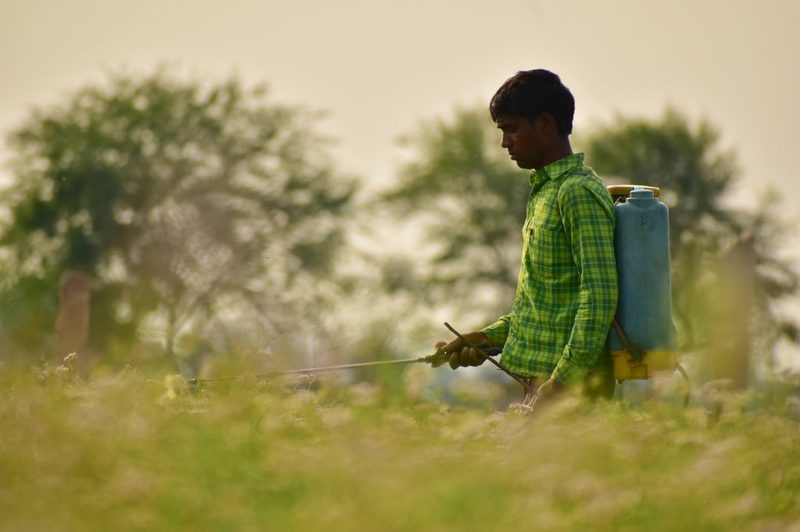Knowing what are the factors affecting pest control effectivity and how long it will take effect can help save your home from a complete pest takeover!
Infestation is probably one of the most disturbing and skin-crawling experiences you could encounter at home. Do not just let your home suffer in silence when nasty bugs or rodents invade it; read this article to know more about pest control!

What Is Pest Control?
Pest Control, otherwise known as Pest Management, eliminates or manages unwanted creatures like pests. Some of the troublesome vermin that pest control can remove are cockroaches, termites, rodents, spiders, bed bugs, and many more.
For several years, pests infestation has been a constant worry for most homeowners. Having these vermin as housemates is a hazard as they can cause health issues and property damage.
Pests are destructive little creatures that can affect daily human activities. They can attack your livestock, feed on your crops, and damage your property and home.
It is why people want to get rid of them as soon as they notice their presence.
Amongst the most common type of pest control is using pesticides, insecticides, and chemicals to eliminate or drive them away. There is also such a thing as control methods, namely biological, mechanical, and cultural control.
If you are interested to learn why is pest control important, you can read this article to know more!
What Affects Pest Control Effectivity?
Here are some things that can affect and impact the effectivity of pest control:
1. Pest resistance
Pest resistance is probably the most significant factor that can impact the effectiveness of pest control. It is when there is a sudden change in the sensitivity of a pest population to a particular pesticide.
Pests can develop resistance if the same pesticide, or one similar to it, is used repeatedly. It is not the particular pest that changes, but the entire population.
Each time you use a pesticide, it only selectively kills the most vulnerable pests. Some manage to avoid the pesticide, while others can withstand its effects.
When the surviving pests breed, their offspring can inherit the genetic trait that confers the resistance to the pesticide. They, in turn, will also not be affected if the same pesticide is used.
The opportunity for pest resistance is most significant if used in a wide geographical area. The pesticide will gradually lose its effectiveness over time.
2. Product
General pest controls cannot kill all types of pests. For instance, roaches, rats, and scorpions need specific product applications to work effectively!
When purchasing pest control products, you must also know how to use them. Most insecticides come in spray bottles that you can spray on suspected areas easily.
There are also the contact and residual types of pest control products. Contact pesticides require immediate and direct contact for them to be effective.
On the other hand, residual pesticides tend to last longer after applying the product. The product resides on the surface where its active ingredients eliminate or control the pests.
Though, before using, make sure to read the instructions attached to the product! You can jump to this article to know why it is important to read the pesticide labels first.
Also, avoid using DIY pest control solutions. They are usually ineffective and often a short-term solution.
3. Pest identification
Accurate pest identification is also needed to ensure that the pest control method and the product you are using are appropriate and effective.
Don’t rely on just a quick google search to see which pest is currently invading your home. Some pest insects resemble others, while some look like beneficial insects.
As said before, some insecticides or pesticides are relatively specific and are only effective on certain kinds of pests. If you think that you have a mite problem, but it turns out that it’s an aphid one, you can expect that the pest control option you did will not work.
4. Timing
Most insects and pests have developmental stages. For instance, small larva stages are often the most vulnerable to insecticides.
It means that the application of insecticides would be most ideal during the early stages of the pests’ development. If the pest population has grown or been established, it would be better to use fast-acting materials to neutralize them immediately.
Some pests are nocturnal, so evening and late afternoon are often most effective.
Unfortunately, not everyone has the luxury of perfectly timing their application. It leads to less effective results.
How Long Will It Take For Pest Control To Work?
You can see a noticeable reduction in pest activity within a day or two in usual cases. The time frame will vary depending on the severity of the infestation, choice of material, and the type of pest.
Once an area is covered with pesticide, it would be doubtful for the pests to make it for more than a week or so. You will need to be patient to see the results!
Typical pest control can last for about 90 days. If outdoor applications see heavy rainfall, the overall efficacy could be affected and last for about 60 days.
After that time frame, the pest control product typically biodegrades and becomes part of the natural environment.
Conclusion
Reading through this article, you now probably know what are the factors affecting pest control effectivity. Now armed with more pest-fighting knowledge, you can now confidently take on your unwelcome housemates!
There are tons of pest control products in the market today, with each one having its own use and application. It would be best for you to know what can affect their effectiveness and efficacy as a homeowner!
